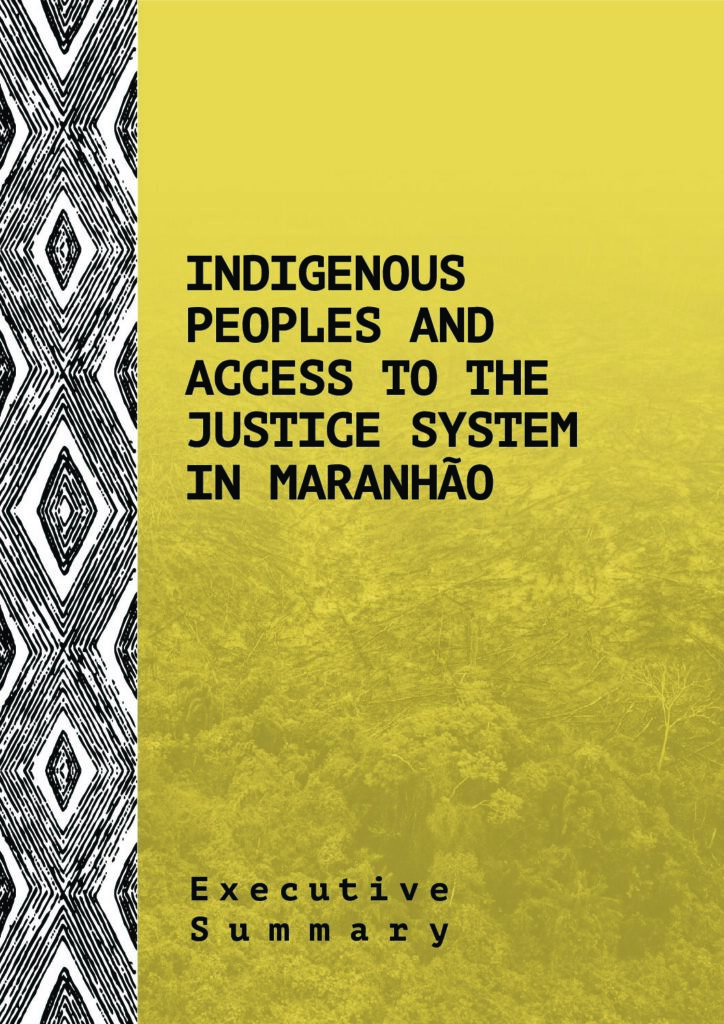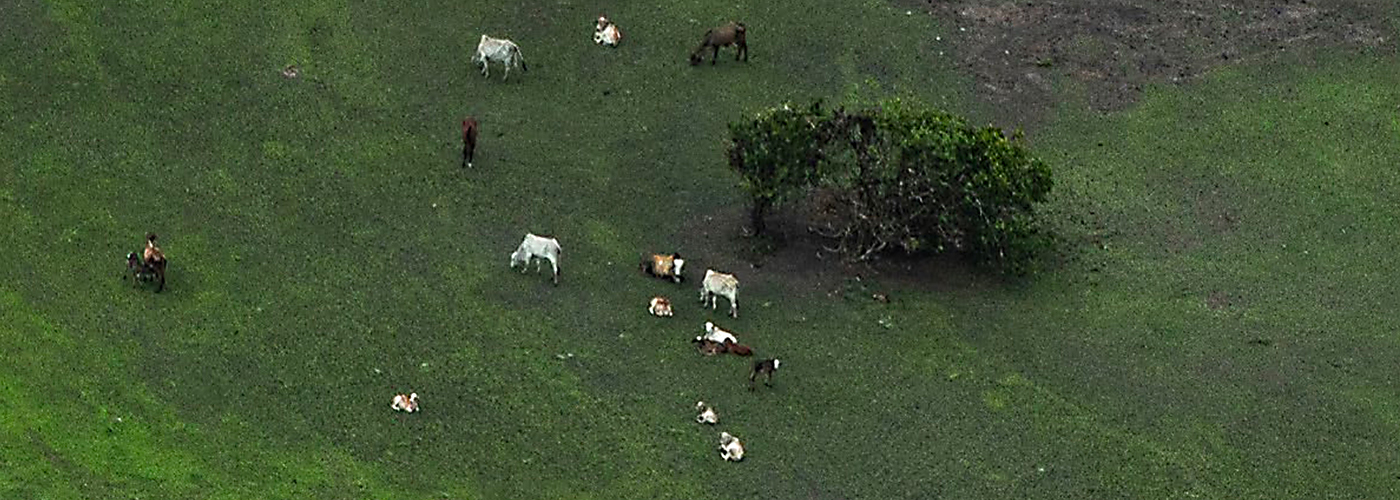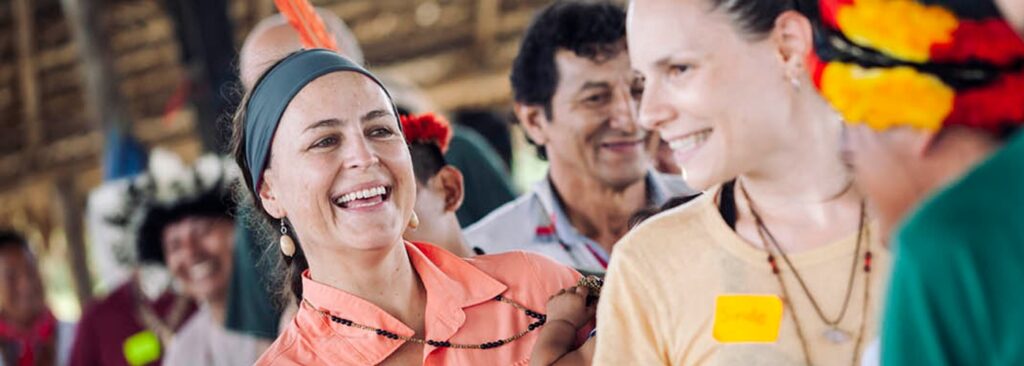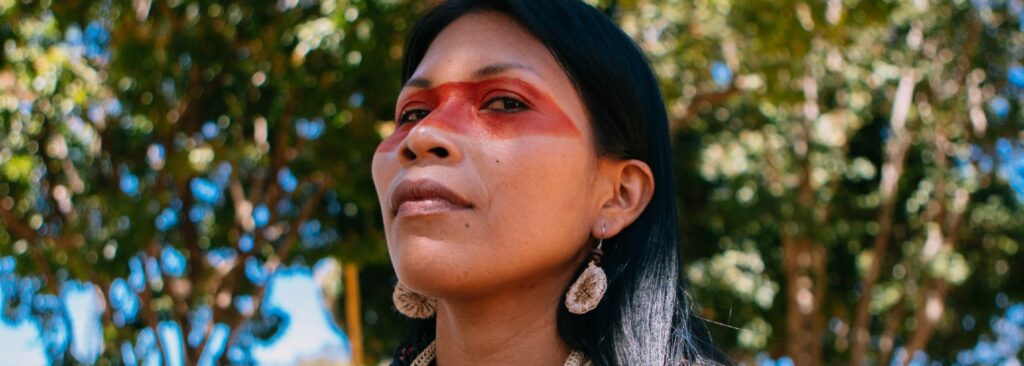Access to information brings access to justice in the Brazilian Amazon
January 5, 2022
In the fight to protect the Amazon, Indigenous Peoples are not only up against violent illegal land grabbers, loggers and other invaders. They are also faced with local and national authorities that foster a culture of impunity. In the Brazilian state of Maranhão, the consequences of impunity are particularly dire.
A 2021 report by COIAB (Coordination of Indigenous Organizations of the Brazilian Amazon) in partnership with Hivos, shows how little access Indigenous Peoples have to the judiciary system and reveals shocking omissions in preventing and investigating crimes against them in Maranhão. It was compiled and published as part of the All Eyes on the Amazon program, with support from the Coordination of Organizations and Articulations of Indigenous Peoples of Maranhão (Coapima), Greenpeace Brazil, and the Articulation of Indigenous Peoples of Brazil (Apib).
Titled Indigenous Peoples and Access to the Justice System in Maranhão, the report used algorithms to perform a thorough search of databases in the Brazilian justice system. This method has turned out to be a foundation tool for ongoing murder investigations, supporting requests by international bodies and helping guarantee Amazonian Indigenous organizations’ right to justice.

Environmental degradation and violence
It found that the state of Maranhão has a long history of tolerating environmental degradation and violence against the lives and rights of Indigenous and traditional peoples. Prodes data from the National Institute for Space Research (INPE) reveals that around 75 percent of the total area of Maranhão had already been deforested in 2017. Of the remaining 25 percent of primary forest cover – equivalent to around 24,000 km2 – more than 70 percent lies within protected areas, including Indigenous Lands and Conservation Units.
There are currently 22 Indigenous Lands in Maranhão that are threatened by “chronic violations of social, territorial, cultural and human rights of original peoples.” (Indigenous Peoples and Access to the Justice System in Maranhão, page 5.)
Indigenous collective rights versus cases of common justice
Another relevant fact in the report is that between 2003 and 2019 there were 57 murders of indigenous leaders reported to the court, of which at least one third were related to the invasion of Indigenous Lands or the illegal exploitation of their resources.
Kari Guajajara, a lawyer and native of Arariboia who works as an assistant prosecutor, admits that Brazil’s judicial system is the main problem. “It is ill equipped to handle criminal cases dealing with the collective rights of Indigenous Peoples. There is little training, the judiciary lacks expertise in the area of indigenous law, and in Maranhão it’s hard to find qualified legal advice,” he says.
An example is the murder case of Indigenous teacher Zezico Guajajara. Here, the local Regional Court disregarded evidence of threats and crimes against the collective rights of Indigenous Peoples and prosecuted his murder as an individual case. This disqualified it from being considered a federal targeted crime (akin to a hate crime), and thus ruled out the jurisdiction of the Federal Court.
However, Zezico Guajajara had been receiving threats against his life for over six months. Active within the Arariboia Indigenous Land in Maranhão, he had assumed an important role in defending the territory. His murder in March 2020 was the result of the targeted violence he faced constantly as a member of his Indigenous community. According to Brazilian law, crimes involving Indigenous issues must be tried by the Federal Court.
This lack of judicial qualification allows cases to be judged by non-competent courts and hinders the creation of jurisprudence that guarantees access to justice in the future.
Other problems outlined in the report include:
- the impunity of perpetrators of environmental crimes
- the “Time Frame” that lets native populations only be entitled to land that was in their possession in or before 1988, when the Brazilian Constitution was enacted
- the violation of the Indigenous right to self-determination and self-representation
- the violation of specific rights of indigenous defendants, such as providing an interpreter if the accused does not speak Portuguese (as is the case of 17.5 percent of the Brazilian Indigenous population)
Access to information – and justice
The report also addresses the lack of access to information. This is one of the main obstacles to compiling data and proving that there are systematic violations of Indigenous rights in Maranhão. It also prevents making public policies that protect Indigenous rights.
The report has proven to be very useful for lawyers and civil society organizations. “We are always carrying it with us. We show it to judges, we use it to add pressure in cases like Zezico’s, and to support requests by international bodies like the Inter-American Commission on Human Rights,”says Kari Guajajara.
After the report was released, the Coordination of Organizations and Articulations of Indigenous Peoples of Maranhão (Coapima) contacted Hivos to request a partnership to hire legal advice for the organization. The next steps of this partnership are being designed within the context of the All Eyes on the Amazon program.
All Eyes on the Amazon is an innovative program to support Indigenous People and local communities in Amazon who fight against deforestation, pollution and human rights violations.



